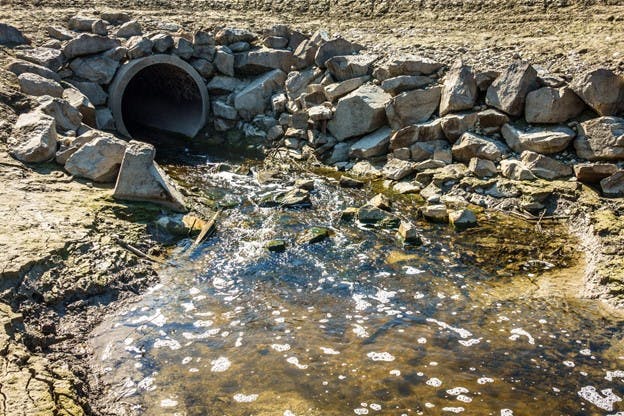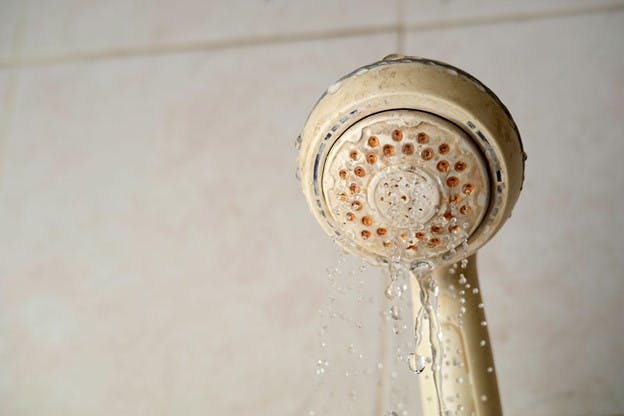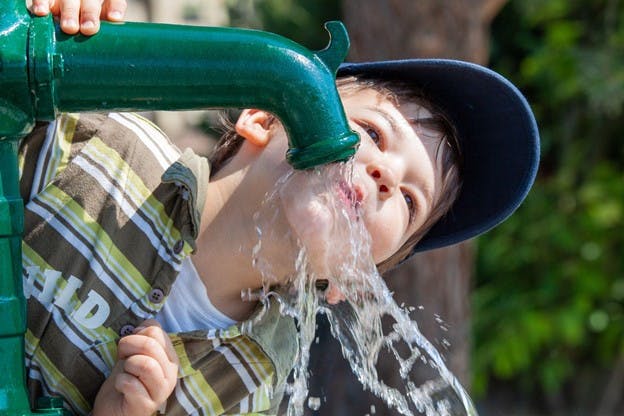February 2023
Here’s How to Find the Best Filter for Well Water
The big city isn’t for everyone. Many relish the idea of getting away from it all. For 23 million American households, getting away from it all includes getting away from municipal water suppliers and relying on a private well for fresh water. How do you manage a well though? Is the water safe to drink? What’s the best filter for well water?
In this guide on private wells, we’ll help you answer these questions and more — starting with testing and safety.
Private Wells vs. Municipal Water Suppliers
Last year, the Chicago Department of Water Management tested the water they sent into homes 600,000 times. That’s more than one test per minute!
And this isn’t unique to Chicago. All public water suppliers test water at every phase — from source to faucet — hundreds or even thousands of times per day because conditions can change rapidly.
Many of the hundreds of common contaminants being tested for are measured in parts per billion or trillion, so meaningful changes are impossible to casually notice. There’s testing for everything from naturally occurring heavy metals, to man-made chemicals like herbicides, pesticides, and disinfectants, to microorganisms like viruses or bacteria.
City water suppliers are legally required to keep water quality to a certain standard prescribed by the U.S. Environmental Protection Agency (EPA). Your private well, on the other hand, has no legal standards and the only person testing or treating your water is you.
How Does a Private Well Work?
In the United States, finding drinking water below ground is usually not that hard as long as you dig deep enough. Private wells are created by drilling down to get to an aquifer. Then water is pumped from the ground so it can be used by you and your family. The depth and method used to create the well can affect the well’s vulnerability to contamination, with deeper wells being the safest.
Where Does Well Water Come From?
Usually the water pulled from the bottom of a well is just groundwater, or rain water that’s been absorbed into the earth and pooled in a deep aquifer. While soil and rocks can act as a natural filter, anything in the soil will end up in your water source. This means hard water minerals, naturally occurring and man-made chemicals, feces, decaying plant and animal matter, microorganisms, and more.
You can be sure there's more than water coming out of your well.
Can Well Water Contaminants Make You Sick?
This depends on what contaminants are in your well water. The only way you can know that is by constantly testing it. While there are no standards for well water quality, the EPA does put out helpful information for getting your well water tested in your state.
Since conditions can change often, frequent testing is important. This is especially true if:
- You know about local problems with your groundwater or drinking water
- Conditions in your area change due to industrial activity, construction, flooding, etc.
- You make a change to your water system
- You notice a change in your water quality
No matter your situation though, knowing the best filter for well water will always give you high-quality water.
Is My Private Well Regulated?
Private wells aren’t regulated so they need to be protected by the owner. Preventing water well pollution locally can go a long way, but many underground aquifers extend several miles and could be polluted from a distance. Some even connect to surface water, which can be a source of contamination.
It’s important to know everything you can about your local water source while also realizing a private well doesn’t have the government protections or standards for water quality that a city water supplier has. So regular testing and knowing the best filter for well water is your responsibility.
Why Should I Test My Well Frequently?
Besides health reasons, regular water testing — even if it always comes back clean — is a good idea because it establishes a record. This can give you clues if something changes abruptly, and it can also provide proof in court if someone else were to damage your water supply.
What Are Common Well Water Contaminants and Problems?
Because private wells are localized, the contaminants can range greatly. The contaminants you care about can also change as circumstances in your life change. For instance, if someone in your household is pregnant, testing for nitrates becomes more important. If you have a gas station nearby, testing for volatile organic compounds (VOCs) could be important.
Annual testing for coliform bacteria, pH levels, nitrates, and dissolved solids is recommended by the EPA. Because groundwater is usually rain water that filters through soil, it's common that your well water will contain the heavy metals and minerals your soil contains. Usually iron, calcium, magnesium, manganese, copper, and some others could cause some quality issues.
Iron
While generally safe, high iron content can change your water’s taste, color it a rusty hue, and cause a metallic odor. Iron can also stain tubs, fixtures, and clothing, as well as cause clogging. Iron can also encourage bacteria growth, which can be harmful to humans. The best filter for well water should remove heavy metals.
Calcium and Magnesium
When groundwater passes through rocks and soil, calcium and magnesium are dissolved into the water. These dissolved mineral solids are what make water hard. Hard water isn’t dangerous to drink, but as these minerals stick to the insides of pipes, fixtures, water-using appliances, and surfaces in your home they can build up and make cleaning a nightmare.
Hard water can also wreak havoc on the lifespan of your whole-house water filter, especially if yours is a reverse osmosis system. Hard water clogs pipes and decreases your water pressure, which can already be low if you're using a well. For this reason, the best filter for well water is usually preceded by a high-quality water softener.
Hydrogen Sulfide
If you’ve been around well water for any amount of time, you’re probably aware that a lot of it smells pretty rotten. Let’s talk about why this is and what you can do about it.
Why Does My Well Water Smell Like Rotten Eggs?
Many people don’t enjoy the smell of chlorine when they turn on the tap, but for most of us it’s preferable to rotten eggs. Many underground sources of water contain a poisonous, flammable, and colorless gas called hydrogen sulfide. Just because it’s colorless doesn’t mean you won’t know it’s there though. Usually long before it gets to be dangerous, you’ll be trying to get away from it due to the smell.
Hydrogen sulfide is common in well water that’s pumped out from beneath a shale or sandstone bedrock, but there are times it can also come from conditions in your plumbing or hot water heater.
What Is the Best Filter for Well Water to Get Rid of Hydrogen Sulfide (Rotten Egg Smell)?
If you’re dealing with the unpleasant odor of hydrogen sulfide from your private well, the good news is there are a few ways to treat it. We’ll go over the two most popular methods here.
Chlorination
Chlorine is a powerful disinfectant. Almost all water treatment facilities add chlorine/chloramine to city water supplies to ensure deadly pathogens don’t make it to your faucet. While chlorine has its problems, it’s probably saved millions of lives over the last century.
Plus, it’s got another relevant benefit.
Chlorine oxidizes hydrogen sulfide. This turns the stinky gas into an insoluble solid. Once converted, this yellow solid can be removed with a common sediment filter.
The trick with chlorine is it has to have contact with the water for 20 minutes to do the job. So, you'll need a chemical feed pump upstream of a mixing tank with enough capacity to ensure 20 minutes of contact. Once it’s fully oxidized, the chlorinated water can move on to your whole-house water filtration system.
Using chlorine has three major benefits:
- It can deal with any amount of hydrogen sulfide in your water. Other methods can only handle smaller amounts.
- It’s an added layer of protection against microorganisms.
- Once it does its job, chlorine is easily filtered out by an activated carbon filter or KDF.
There are three downsides to chlorine, but only if you don’t filter it out after use. The downsides are:
- The smell. While it’s better than rotten eggs, it’s still not pleasant for your drinking water to smell like a swimming pool.
- Chlorine can dry out your skin and hair and irritate your respiratory system.
- Disinfection byproducts (DPBs) like TTHMs and HAA5 can be formed when chlorine interacts with impurities in your water. DPBs can be dangerous in high doses.
HomeWater’s multi-stage filtration systems remove chlorine, DPBs, and sulfide solids so you can rest easy.
Let’s look at the second method for dealing with that rotten egg smell.
Kinetic Degradation Fluxion (KDF) Filter Media
The best filter for well water may be the specialized whole-house water filtration systems that contain KDF filter media.
KDF is NSF-certified to reduce many problematic contaminants from well water like iron, hard water minerals, and hydrogen sulfide gas.
KDF is sometimes added as a pre-filter in well water filtration systems. It works by exchanging ions with water contaminants to make them harmless or easier to filter out. For instance, KDF changes chlorine into harmless chloride.
HomeWater’s 4-Stage Whole Home Filter System uses more KDF 55 filter media than many of our competitors.
What’s the Best Filter for Well Water?
Well water use is complex. Most public water supplies come from groundwater systems just like private wells. To ensure safety and quality, the water suppliers send that groundwater through many types of filters and purification processes before it becomes tap water.
If you’re doing the DIY version with a private well, mimicking a public water source to the best of your ability could help you ensure safe water usage in your household. Frequent uses of test kits to understand your unique water source is a good start. Then, utilizing a mix of different treatment methods that are common to water treatment plants — like the combo of water softener, UV light, reverse osmosis, KDF, and coconut shell carbon block filters — could provide added protection.
This might sound like a lot, but the good news is many multi-stage, whole-house water filter systems and under-sink filters have all of this built in already.
You Can Have Great Quality Water From Your Private Well
Living off the grid means maintaining high-quality water for you and your family is up to you. Frequent tests and knowing the best filter for well water can make your water management journey a lot easier.
We created our 4-Stage Whole Home Water Filter to be one of the best well water filtration systems you can buy. This durable, American-made, multi-stage filter protects your entire house from common contaminants, while making sure your water flow stays strong. With our salt-free water softener and ultraviolet disinfection system add-ons, great-tasting water will pour from every faucet in your home with minimal maintenance required. And it’s backed by HomeWater’s 30-day money-back guarantee.
Related Articles
January 2023
How to Find the Best Water Purifier for Home Use
October 2022



